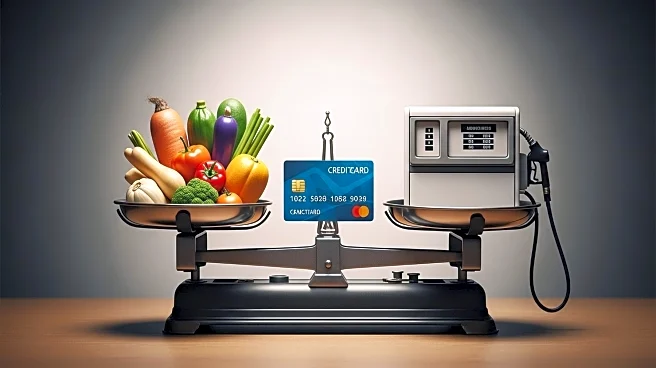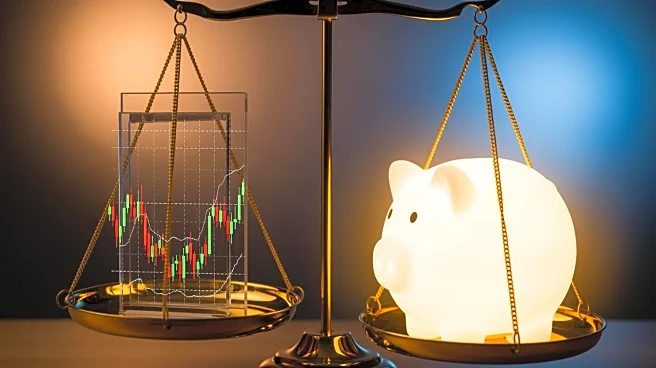What's Happening?
A new report highlights that American consumers are increasingly using credit cards to manage the rising costs of groceries and gas. According to TD Bank's credit card pulse check survey, groceries have become the top spending category for many, with 46% of respondents citing it as their primary monthly expense. The personal consumption expenditures price index indicates that consumer spending remains strong despite persistent inflation. Grocery prices have risen by 2.7% in August compared to the previous year, marking the fastest annual increase since August 2023. This trend is causing financial strain as consumers experience 'sticker shock' when purchasing essentials.
Why It's Important?
The reliance on credit cards for essential purchases like groceries and gas underscores the financial pressure many Americans face due to inflation. This trend could lead to increased debt levels as consumers struggle to keep up with rising costs. The situation highlights the broader economic challenges posed by inflation, affecting consumer behavior and potentially impacting the overall economy. As credit card usage rises, financial institutions may need to address the risks associated with higher consumer debt and explore solutions to support those affected by economic pressures.
What's Next?
Financial institutions and policymakers may need to consider measures to alleviate the burden on consumers, such as offering financial education or adjusting interest rates to prevent excessive debt accumulation. The ongoing inflationary pressures could prompt further analysis and action from economic stakeholders to stabilize prices and support consumer purchasing power. Monitoring consumer spending patterns will be crucial in understanding the long-term impacts of these trends on the economy.









